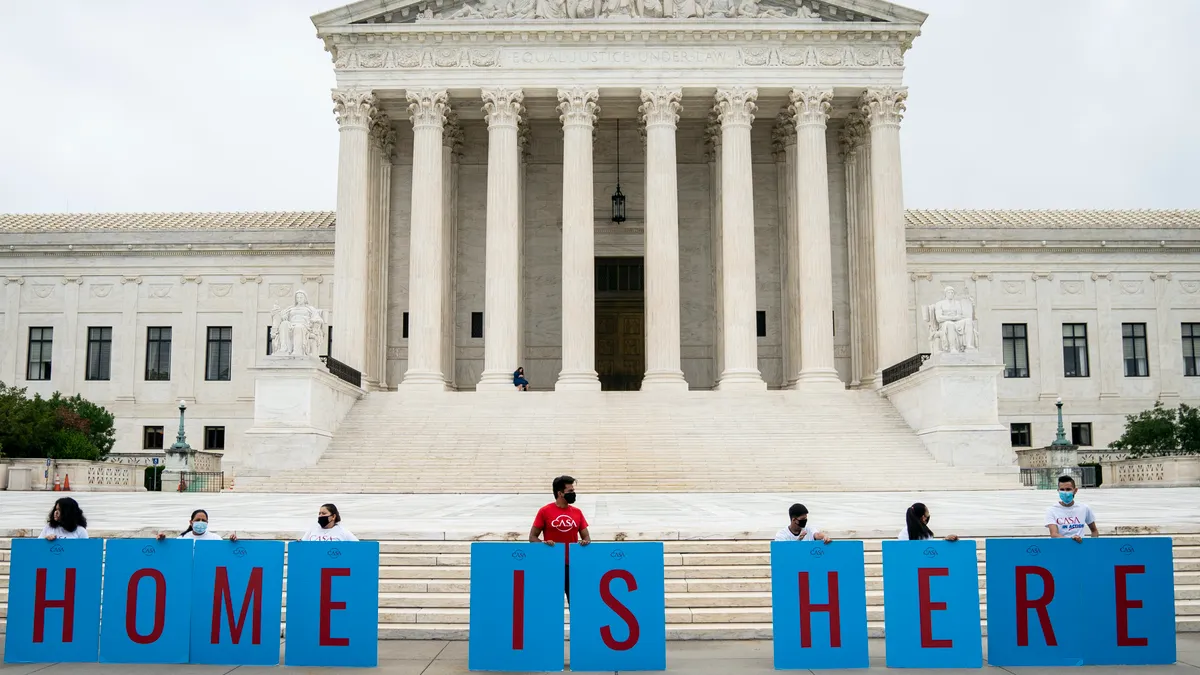Dive Brief:
- A federal judge ruled the Deferred Action for Childhood Arrivals program unlawful Wednesday but did not call for an immediate end to the policy or its protections. Around 141,000 college students were eligible for or enrolled in DACA in 2021.
- DACA shields immigrants brought into the country illegally as children from deportation, and permits them to study and work. U.S. District Judge Andrew Hanen’s ruling continues to bar the federal government from accepting new DACA applications but allows it to process renewals for current recipients.
- Hanen’s ruling will likely be appealed. If it does, DACA’s fate will once again be in the hands of the U.S. Supreme Court, which holds a strong conservative majority.
Dive Insight:
Uncertainty around the program's future has left many students in the lurch. And eligible prospective students who haven't been able to enroll in DACA can't receive benefits, like in-state tuition and scholarships, for which they otherwise would have been qualified.
Democratic Rep. Jesús "Chuy" García, of Illinois, called Hanen's decision terrible on Wednesday and advocated for a legislative pathway to citizenship.
"DACA recipients can't keep living in legal limbo," he tweeted.
Last year, the U.S. Department of Homeland Security released a 453-page rule designed to protect the program from legal challenges, replacing the Obama-era memo that created DACA. But in Hanen’s ruling, he said Congress must be the branch of government to solve the issues DACA attempts to address — not the White House or the judiciary.
"Congress, for any number of reasons, has decided not to pass DACA-like legislation," he wrote Wednesday. "The Executive Branch cannot usurp the power bestowed on Congress by the Constitution — even to fill a void.”
The lawsuit against DACA began in 2018 when nine states, led by Texas, argued that only Congress could have approved a program like DACA and former President Barack Obama overstepped his executive power by creating it.
Hanen agreed with that sentiment when the case came before him in 2021, but he stopped short of ordering that DACA be scrapped entirely. That led the Biden administration to codify the program in regulations, but Hanen was unimpressed by the move.
"The creation and adoption of the Final Rule took no steps to avoid any of the substantive pitfalls that have been pointed out," he wrote Wednesday. "Perhaps because DHS did not want to, or perhaps because it was not possible to do so and retain the DACA program as currently constituted."














